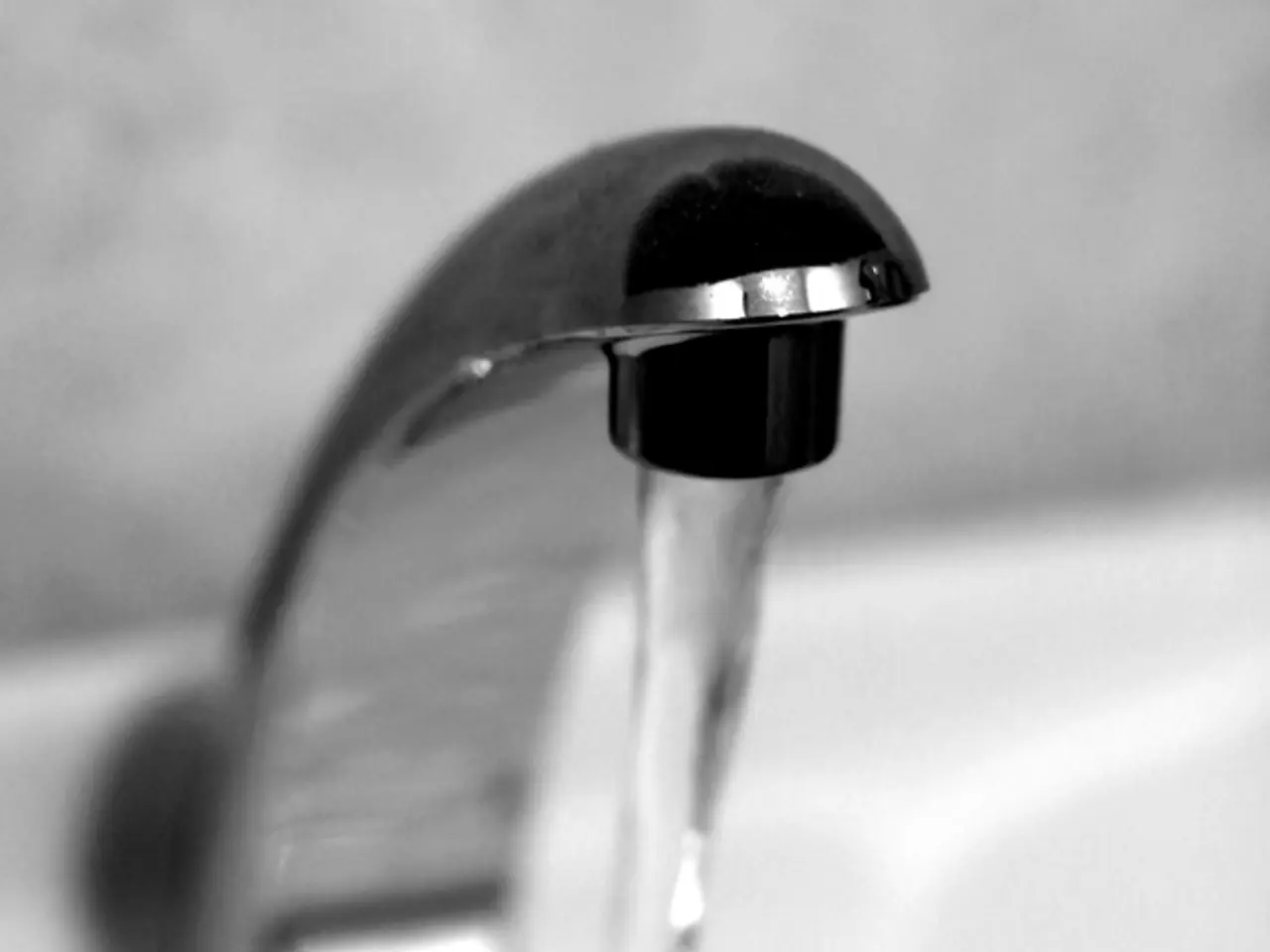Neuss Considering Water-Based District Heating Project for Affordable Residential Heating Solution?
In the picturesque city of Neuss, property owners now have the opportunity to choose from a variety of eco-friendly heat supply options, as the city explores the possibilities of renewable energy sources. Meanwhile, construction on a large heat pump plant in Cologne is set to begin next year, marking a significant step towards climate-neutral heat supply and renewable energy usage in Germany.
The implementation of large river heat pumps, such as the planned project in Cologne and potential ones in Neuss and Mannheim, plays a crucial role in this transition. These systems harness the heat naturally present in river water, which would otherwise remain untapped, to power local district heating systems. By replacing fossil-fuel-based heat generation methods, they help advance Germany's climate neutrality goals.
One of the key benefits of river heat pumps is their ability to provide renewable heat for district heating. By tapping into the abundant and consistent thermal energy of rivers, these systems can supply cities like Cologne, Neuss, and Mannheim with sustainable heating, reducing reliance on fossil fuels and lowering carbon emissions in urban heating networks.
The Cologne heat pump project, scheduled for completion by 2027, aims to supply heat for 30,000 households and will have a heat output of 150 megawatts. The plant, to be built at the harbor basin in Niehl next to the existing power plant, will use river water from the Rhine. The Rhine, with its continuous supply of warm water, is an ideal source for heat pumps.
Neuss, too, is moving forward with its own municipal heat planning. The city council has applied for funding from the state of NRW and is currently determining the heat demand and considering various renewable energy sources. The city is considering setting up heat networks, using waste heat from industrial production, geothermal energy, solar thermal energy, or the Rhine water for a large heat pump. After completion of the municipal heat planning, scheduled for spring 2025, all citizens will know the heat supply options available in their street in the future.
The city of Neuss has received the funding decision and is working on its own planning. The municipal heat planning in Neuss is significantly further ahead than many other cities, setting a positive example for the rest of the nation. Mannheim recently put the current largest river heat pump into operation, demonstrating the potential for wider adoption of such infrastructure to augment renewable heat capacity in urban areas.
In summary, large river heat pumps enable cities in Germany to harness clean, renewable thermal energy from rivers, replacing fossil heating and aiding in achieving climate-neutral heat supply goals while integrating well with evolving district heating and thermal storage technologies. Projects like the Cologne river heat pump serve as exemplars of utilizing local renewable thermal resources at scale, contributing directly to Germany’s energy transition.
- The city of Neuss, having received funding for its municipal heat planning, is significantly further ahead than many other cities, setting a positive example for the nation.
- In line with the energy transition, Mannheim recently put the current largest river heat pump into operation, demonstrating the potential for wider adoption of such infrastructure to augment renewable heat capacity in urban areas.
- Environmental scientists and financiers alike recognize the importance of integrating large river heat pumps into district heating systems, as they provide renewable heat and contribute to Germany's climate neutrality goals.
- As the renewable energy industry continues to grow, cities like Neuss, Cologne, and Mannheim are working to incorporate various sources of renewable energy, such as geothermal energy, solar thermal energy, and river heat pumps, into their environmental-science-driven heat supply strategies.




